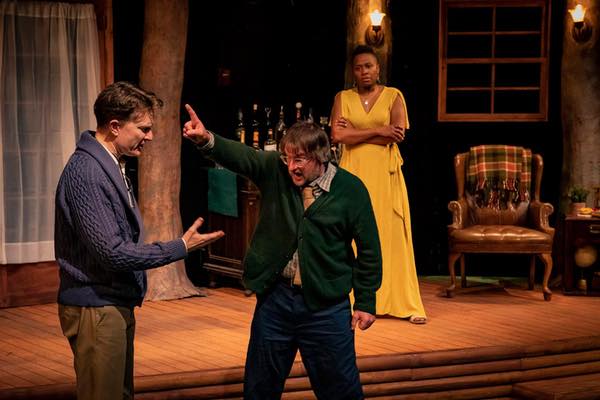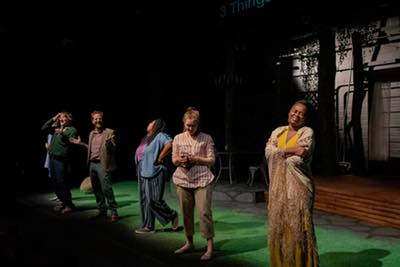
Anton Chekov, along with Henrik Ibsen and August Strindberg, were late 19th- and early 20th- century European playwrights who were the seminal figures in the birth of theatrical modernism. They turned their backs on the escapist romantic stories and took on real issues, and presented real people with real problems.
Chekov is often credited with alerting Russians to the upcoming revolution. He is also noted for laying the foundation for altering the acting style used in staging theatrical works. His plays required authentic representation of the character and led to the Stanislavski system of acting, in which an actor didn’t portray a character, but became the character.
Uncle Vanya, one of Chekov’s four great plays, concerns “an elderly professor and his glamorous, much younger second wife, Yelena, [who] return to the rural estate that supports their urban lifestyle. Vanya, brother of the professor’s late first wife, who has long managed the estate, and Astrov, the local doctor, both fall under Yelena’s spell, while bemoaning the ennui of their provincial existence. Sonya, the professor’s daughter by his first wife, who has worked with Vanya to keep the estate going, suffers from her unrequited feelings for Astrov. Matters are brought to a crisis when the professor announces his intention to sell the estate, Vanya and Sonya’s home, with a view to investing the proceeds to achieve a higher income for himself and his wife.”
The plot of Life Sucks, Aaron Posner’s “kinda” adaptation of Chekov’s work, keeps the same story line, modernizes the time, and uses actors directly speaking to and asking questions of the audience, as well as having the actors make political and social commentaries to both interpret for and challenge the theatergoers.
While Uncle Vanya is clearly a drama, Life Sucks defies traditional categories and might be called a “fantastic, fantasy!”
Posner himself defies classification. He doesn’t write plays per se; he adapts, creates variations of other author’s works, and re-imagines writings.
The seven characters — lustful, lonely, hapless souls — stumble through their lives, often concluding that life sucks. Or does it?
They, and hopefully we, realize that the world is totally fu**ked up. Or is it?
They, and we, see that “life staggers, life confounds, life is beautiful, and life sucks.” Or does it?
In contrast to most plays, which only portray the issues, this script allows the audience to answer the questions. Not in the car on the way home, or at home, but in the theater. While lots of plays challenge audience members to think, this play gives them the opportunity to express what they can do about it.
Both Uncle Vanya and Life Sucks end with the idea that if you don’t like your life, then you should do something about it. In Uncle Vanya the audience is left to ponder. In Life Sucks, the actors challenge you to answer what will you do? Don’t want to answer, don’t. But if you do, you have the chance.

The play is thought-provoking yet it has moments of absolute hysteria. Dobama’s production, under the direction of the theater’s artistic director, Nathan Matta, is close to perfection.
The cast — Chis Bohan (Vanya), Andrew Gorell (Aster), Chennelle Bryant-Harris (Pickles), Jourdan Lewanda (Sonia), Steve Marvel (Professor), Anne McEvoy (Babs) and Nicole Sumlin (Ella) — is strong, with each actor clearly developing their character. The beautiful set, lighting and sound all help develop the correct moods.
The only issue was that several actors ignored that the Dobama stage is long and narrow. This configuration makes for difficulty in hearing when actors are on extreme stage left and right. They have to project to the last row on the opposite side to be heard. This has been a problem all season. Either the theater needs to reconfigure the audience seating, change the stage shape, or consider putting mics on the actors.
Capsule judgment: Several years ago I ended my review of Dobama’s production of Posner’s Stupid F**king Bird with the comment, “As a person present at the very start of Dobama, I would say that Donald Bianchi, the theater’s founder, would approve and be delighted that ‘his’ theater is still fulfilling ‘his’ dream.” For Life Sucks, I conclude: “Ditto!” My recommendation? Go, see, enjoy, participate!
Life Sucks runs through May 22 For tickets call 216-932-3396 or go to www.dobama.org
[Written by Roy Berko]